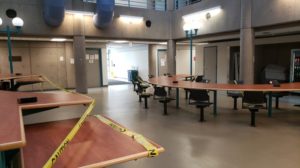In Sweden, a person can go on sick leave for burnout. If you’re feeling chronically burnt out, it’s fine, take some time off. It’s yet another nod to the beginning of the end of the American dream, capitalism, and many other systems bordering on geriatric.
Over the weekend, in a community group I’m part of on Facebook, someone shared photos of a fully stocked fridge. Turns out, you can follow @communityfridgevictoria on Instagram if you’re in need of food (hit it up at 2725 Rock Bay Avenue, where the community fridge is). That sort of thing needs to happen more and more in a world that’s becoming more and more expensive, it seems, by the month. As such, the feasibility of supporting yourself without being in debt for the rest of your life diminishes.

Countries in Europe with shorter work weeks have higher rates of overall happiness. The pandemic has given us an opportunity to take note of that, and to take note of what is really important to us. The pandemic has also exacerbated the burnout phenomenon, according to a recent article in The New Yorker. The pandemic has exacerbated the burnout because many of us are living one way—with a degree of freedom, ease, and scattered focus—yet the systems are still telling us to live the old way.
One thing is ringing true: people are tired. People are tired, people are tired, people are tired: how many times do we have to scream it?
Maybe when that work email dings at 1 pm as you’re emptying the dishwasher or holding your toddler, try answering when it’s convenient for you instead of dropping everything to get back to it immediately.
If I can convey one message to struggling students, it’s this: you’re not alone. So, post a message on your online support groups, apply for a bursary, a food hamper, or assistance. It’s time to restructure a broken world.
